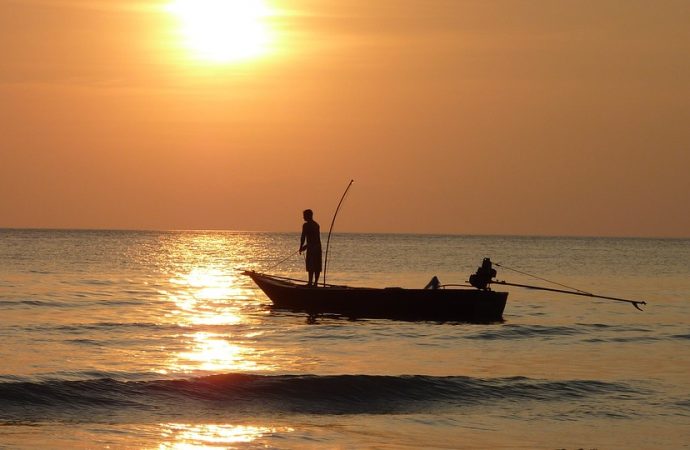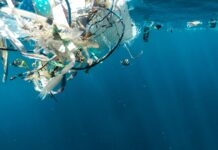Like fish and the fishers that chase them, the story of fisheries science can take us across the world’s oceans and seas. However, until recently, historians of fisheries science only trained their attention on the North Atlantic and Pacific Oceans, the birthplaces of ‘stock assessments’1. Stock assessment is the scientific practice of estimating the abundance of fish; without it, we have no way of telling how many fish of a particular species are in the sea. But asking how much fish is in the sea is also a political question, and it affects the practices of stock assessments. In my doctoral studies at AISSR, UvA, I trace the history of marine resource assessments from the 19th century to the present in India, which is one of the largest producers of marine seafood from tropical waters today.
Writing the history of fisheries science
There are many ways to produce a history of a scientific discipline. The most conventional is to focus on the growth of scientific concepts that follow neatly one after another to provide a picture of steady progress. In such accounts, there are scientific heroes whose genius and perseverance fuels the steady march of science. Stories of inconsistency, multiplicity and disunity seldom figure in them.
Wanting to produce a more ‘real’ history of fisheries science, I draw from the game-changing scholarship in Science Studies, a field that has laid bare the intricate relations between science and politics2. Science Studies examines scientific work as sociological and cultural work; it also allows me to ‘follow’ scientists in the style of anthropologists and sociologists. To this repertoire, I draw from history and its methodological aids as I also attempt to follow scientists in the past3.
A politically charged science
Stock assessments lie at the centre of fisheries science. Evaluating fish stocks allows scientific bodies to respond to questions such as how much fish each nation’s EEZ (Exclusive Economic Zone) could and should catch–a critical political problem as nations compete for access to coveted fish resources (translated into protein, food, consumption fads, oil, manure, and of course, money). Stock assessment is a scientific method and, by the standards of ideal scientific practice, should be practised uniformly across the world. I study how scientific practices around stock assessment simultaneously deviate and perform textbook prescriptions which allow us to see close relations between science and politics (at the scale of individual judgements, decisions and material choices). I also study how scientists who carry on this politically charged work relate to the demands of governance and policy. Finally, I ask an explicitly political question myself–can and should disciplines like fisheries science escape the influence of politics and is good science about good politics? How could such politics be practised?
Bringing order to the seas
By the mid-19th century iconic northern fisheries for cod, herring, salmon and plaice experienced major fluctuations causing ripples of anxiety among fisher communities, industries and governments of Europe and North America. Around this time, in Dutch and later British controlled parts of India, fluctuations, uncertainty and unknowns in marine fisheries also bothered colonial era consumers, traders, administrators and scientists. ‘Men of science’ who conducted the first studies of fisheries in colonial India were compelled by questions of ‘ordering’ a disordered and unruly nature – one that would need to make sense in terms that they had learned in their home countries. Contemporary fisheries science in India bears several traces of these practices of ordering, naming, categorizing and measurement. Through archival research, internet searches, secondary data gathering and interviews, I was able to examine communication between government officials and scientists about such practices, for a period spanning the mid-1800s to the present.
Fish and the marine space first had to be rendered in terms of property (usually of the State) before they could be subjected to any form of study. Further, these ‘resources’ needed to be improved, which meant better understood, better exploited and better-managed fisheries.
The term ‘fisheries’ incorporates not just fish but also fishers. Conceptual aspects of fish abundance always had to factor in uncertainty or unknowns for both, fish and fishers. In order to obtain information about fisheries, scientists had to develop skills and practice of engaging with humans (e.g fishers, field staff) and non-humans (e.g scientific equipment, landscapes and fish) usually by monitoring, surveillance and negotiations. In these practices also emerged a conception of what distinguished ‘scientific men’ from the ‘ignorant masses’ but also from government and policy.
So far, my research shows that the scientific practices of stock assessment – the pumping heart of fisheries science, whether in its early avataars or its present versions, was always accompanied by efforts of fisheries ‘improvement’ and ‘development’ practices. Ideas of abundance dramatically affect the practices of fishing – in intensity, scale, method and purpose. As I investigate these fraught accounts of scientific ideals and slippages in counting fish, I see scientific practices as cultural and political, but not analogous to ‘post-truth’. Science politics (decisions, judgments and values in cultures of science) can be unpacked to see how a truth (however contestable) is constructed, and hence holds promise for more democratic practice. Post-truth politics, on the other hand, suggests absolute immunity from even a pretence to truth. I hope that research like mine will make people march for sciences that are explicitly more political – one that is designed to make explicit how its own concepts and practices can lead to differential losses and gains for the future of fisheries.
Aarthi Sridhar is a doctoral candidate at the GPIO, AISSR, University of Amsterdam. She is also Founder Trustee of Dakshin Foundation, an environmental non-profit in India. E-mail her at aarthi77@gmail.com
References
1 Finley, C. (2011). All the fish in the sea: maximum sustainable yield and the failure of fisheries management. University of Chicago Press.
2 For a basic introduction to the field see Sismondo, S. (2010). An introduction to science and technology studies (Vol. 1). Chichester: Wiley-Blackwell.
3 For an experiment in working with Science Studies and History of Science see Sridhar, A. 2017 Engaging with archival texts: Performing disciplinary transgressions between Actor-Network Theory and History of Science. Maritime Studies 16:11. https://doi.org/10.1186/s40152-017-0065-5





